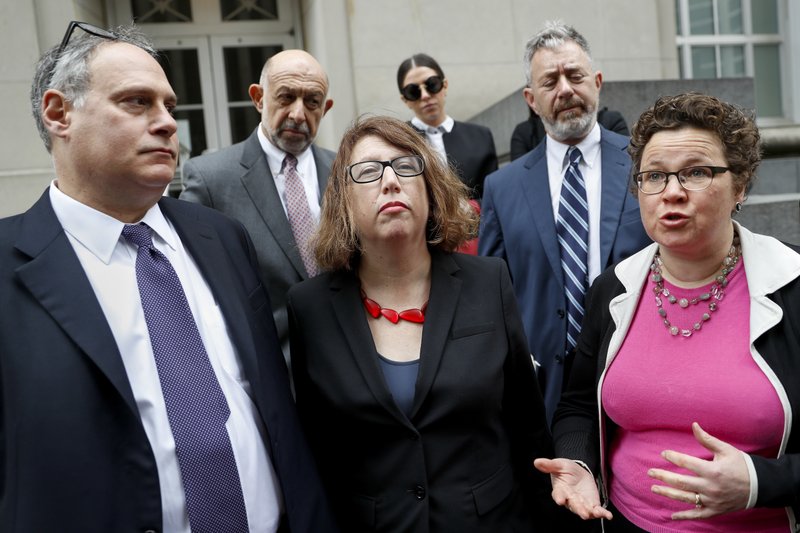CINCINNATI -- Civil-rights attorneys contended Wednesday that President Donald Trump's administration tried to rush deportations of Iraqis who faced torture, sexual slavery and even beheadings in their home country.
A 6th U.S. Circuit Court of Appeals three-judge panel in Cincinnati heard arguments on the federal government's request to lift a judge's order blocking the deportations.
American Civil Liberties Union attorney Lee Gelernt told the panel that U.S. District Judge Mark Goldsmith in Detroit last year was "faced with the nightmare scenario of signing people's death warrants." Many of the 1,400 Iraqis nationwide designated for deportation for immigration violations are Christians or members of other minority groups who ACLU attorneys say would be persecuted if returned.
Iraqis have fled persecution under Saddam Hussein, during the Iraq War and the subsequent rise of the Islamic State militant group. Although Iraqi forces finally routed the Islamic State last year, minorities remain vulnerable to persecution and discrimination. Unlike other groups such as Sunnis, Shiites and Kurds, many minorities do not have militias to protect them.
There are roughly 220,000 Iraqi-born people in the United States, according to federal estimates.
The case before the three-judge panel grew out of the June 2017 roundup of dozens of Detroit-area Iraqis amid more aggressive, broader immigration policies since Trump, a Republican, became president.
[U.S. immigration: Data visualization of selected immigration statistics, U.S. border map]
Federal attorneys say Goldsmith overstepped his jurisdiction and that the Iraqis could have challenged removal in immigration courts, and then to the federal appeals court.
"The district court just got that wrong as a matter of law," said Justice Department attorney Scott Stewart. He said the immigration courts have a "robust" and "thorough set of protections."
The Iraqis had been facing removal for years for immigration violations, such as overstaying their visas, or for committing crimes, some of them violent, in the United States. Stewart said that at some point, people who've been found subject to removal "are supposed to depart."
Judge Jeffrey Sutton questioned both sides repeatedly on what he saw as inconsistencies in their cases, and he told ACLU attorneys that he was struggling to see why Iraq was different from other countries on which they hear immigration appeals.
The attorneys said there wasn't enough time to appeal deportation orders in the immigration court system because federal agents suddenly began rounding up people in the aftermath of Iraq's agreement to accept them when the Trump administration dropped Iraq from the countries in its travel ban.
Gelernt said some Iraqis had been facing deportation within days. The ACLU attorneys said some had been living openly and cooperating with immigration authorities for decades and didn't expect to be sent back to Iraq with little warning.
The government is also challenging Goldsmith's order to release on bond Iraqis held more than six months unless they're a public safety risk.
The panel didn't indicate when it will rule.
Information for this article was contributed by Qassim Abdul-Zahra and Maggie Michael of The Associated Press.
RELATED ARTICLE
http://www.arkansas…">Justices delve into travel ban
A Section on 04/26/2018

